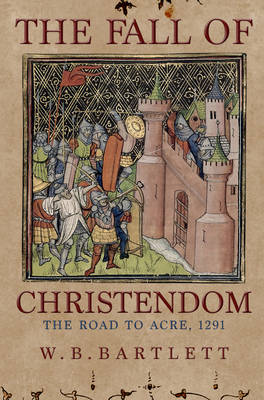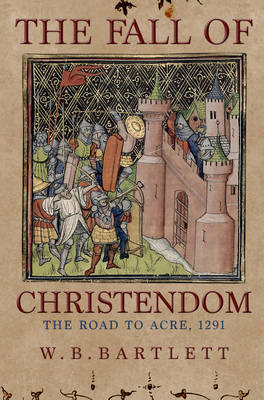
Door een staking bij bpost kan je online bestelling op dit moment iets langer onderweg zijn dan voorzien. Dringend iets nodig? Onze winkels ontvangen jou met open armen!
- Afhalen na 1 uur in een winkel met voorraad
- Gratis thuislevering in België vanaf € 30
- Ruim aanbod met 7 miljoen producten
Door een staking bij bpost kan je online bestelling op dit moment iets langer onderweg zijn dan voorzien. Dringend iets nodig? Onze winkels ontvangen jou met open armen!
- Afhalen na 1 uur in een winkel met voorraad
- Gratis thuislevering in België vanaf € 30
- Ruim aanbod met 7 miljoen producten
Zoeken
Omschrijving
In the early middle ages the Christian presence in the Middle East took a series of blows from often superior Muslim forces, only for a fresh wave of Crusaders to regain territory. But the Fall of Acre in 1291 was the dramatic event that finally brought dreams of a Christian Holy Land crashing down. The city had first been captured by Crusaders under Richard the Lionheart in 1189-91. The aftermath was a horrific massacre of 3,000 Muslim prisoners on Richard's orders - which contrasted vividly with the peaceable capture of Jerusalem by Saladin in 1187. Three quarters of a century later the Mamluk sultan, Baybars, had assumed Saladin's mantle. He was a powerful statesman who had turned back the Mongol tide that threatened to deluge Asia and Egypt, the mainstay of Muslim power. He was also utterly ruthless, conquering Crusader towns and castles with terrifying persistence. Eventually just a few towns were left, most crucially Acre, the Christians' capital since Jerusalem had been lost. Then Baybars suddenly died in what seemed like divine intervention. But in this chance for peace, visitors from Europe assaulted Muslim traders and the sultanate in Cairo reacted with force. In the harsh siege that followed, Templars and Hospitallers fought alongside secular knights in a frantic last stand. But the Muslim forces broke in and unleashed a reign of terror. As Venetian sea captains negotiated with the highest bidder to ship Christian refugees to safety, thousands were killed or taken into slavery in reprisal for the historic massacres of Muslims in Jerusalem in 1099 and Acre in 1191. The Crusaders' centuries-old campaign to unite Christendom around Jerusalem would never recover.
Specificaties
Betrokkenen
- Auteur(s):
- Uitgeverij:
Inhoud
- Aantal bladzijden:
- 320
- Taal:
- Engels
Eigenschappen
- Productcode (EAN):
- 9781445684178
- Verschijningsdatum:
- 1/01/2022
- Uitvoering:
- Hardcover
- Formaat:
- Genaaid
- Afmetingen:
- 156 mm x 249 mm
- Gewicht:
- 489 g

Alleen bij Standaard Boekhandel
+ 55 punten op je klantenkaart van Standaard Boekhandel
Beoordelingen
We publiceren alleen reviews die voldoen aan de voorwaarden voor reviews. Bekijk onze voorwaarden voor reviews.











